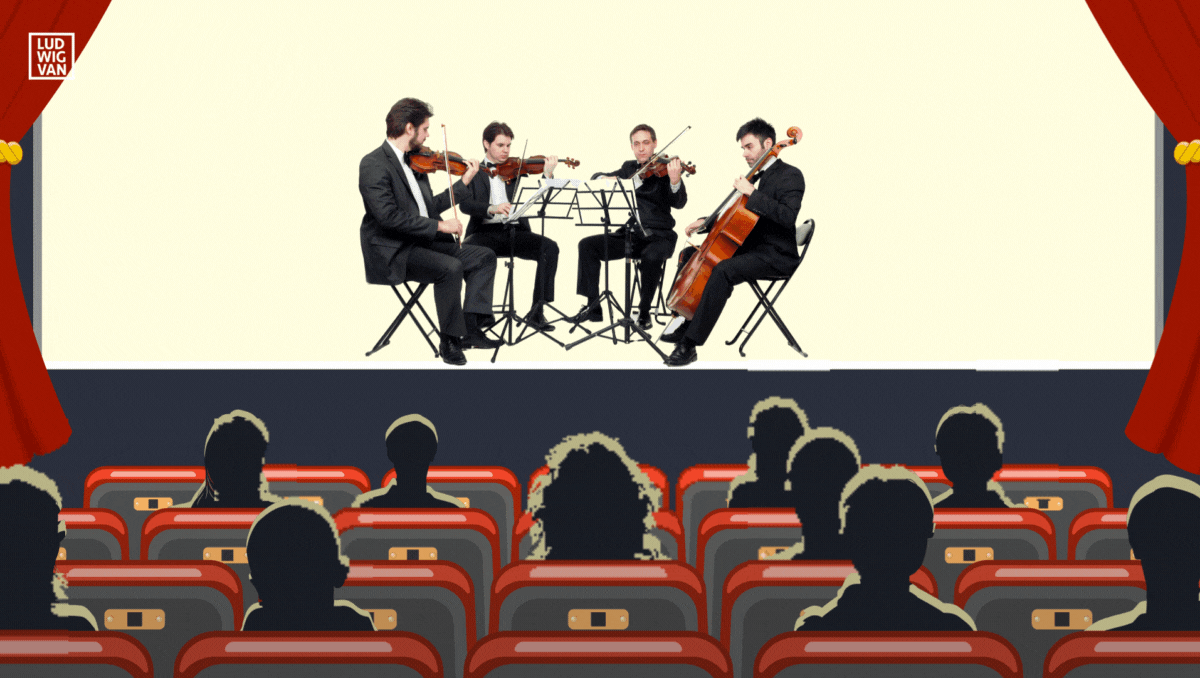
Ever wondered why you feel so connected to people at a live music concert? Turns out, it’s not just in your head — it’s in your heart and sweaty palms too.
Researchers at the University of Bern observed something magical happening when people were listening to music together. Audience members’ heartbeats, breathing, and even sweating began to move harmoniously with the group vibe.
Wolfgang Tschacher and his team hooked up 132 folks with sensors during the concerts to track their responses.
The results?…
…. the audience had Increased synchronization in heart rates, breathing speeds, and skin conductance (that’s science for sweat levels) among the participants.
The study looked at 132 participants across three concerts showcasing Beethoven’s Op. 104 in C minor, Australian composer Brett Dean’s Epitaphs, and Brahms’s Op. 111 in G major. Each participant wore a belt with special sensors that tracked their body metrics as they listened to the music.
Digging deeper
In an interview published in New Scientist, Tschacher stated that if you’re the open-minded or agreeable type, you’re much more likely to sync up your physical response to the experience with the crowd. This includes people who love new experiences, like art and travel, and those who are eager to meet social expectations.
“It is fascinating that people at a concert, who do not know each other and do not even speak to each other, seem to have a shared experience, based on measurements like their heart rate,” said Tschacher.
“When we see synchrony, we know people are really engaged in the music, as they are reacting to it emotionally in the same way.”
A brain teaser
Previous research has shown that it’s not just the audience but performers and conductors as well who can have synced physical reactions during shows.
Beethoven enthusiasts might find it intriguing that his String Quintet in C minor didn’t resonate as much as Brahms or Dean’s Epitaphs in terms of coordinated reactions.
Bonus
Over the years, classical music has been the subject of numerous studies to determine its effects on the brain and overall well-being. Here are some key areas of research and their findings:
- Pain and Anxiety Alleviation: Recent studies suggest that classical music can diminish pain and anxiety levels, especially in hospital settings, enhancing patients’ overall well-being during their stay.
- Rehabilitation Boost: Stroke victims have displayed significant cognitive improvements when classical melodies are incorporated into their rehab sessions, offering a therapeutic avenue.
- Memory Enhancements: Beyond the renowned “Mozart Effect,” fresh studies indicate that classical rhythms can aid in the memory encoding process, helping with recall tasks.
- Emotional Intelligence Tuning: Classical tracks aren’t just for your ears. Modern research reveals they can fine-tune one’s emotional understanding and recognition, nurturing emotional intelligence.
- Neurological Bridges: Using advanced brain imaging, scientists have found that absorbing classical compositions can foster enhanced connectivity between brain hemispheres, streamlining cognitive functions.
- Vale, Maestro: Sir Andrew Davis (1944–2024) - April 22, 2024
- The Lord of the Rings Opera Gets Green Light from Tolkien Estate - April 15, 2024
- Chicago Takes the Leap with Youngest Appointment in CSO History - April 8, 2024


